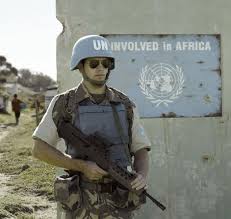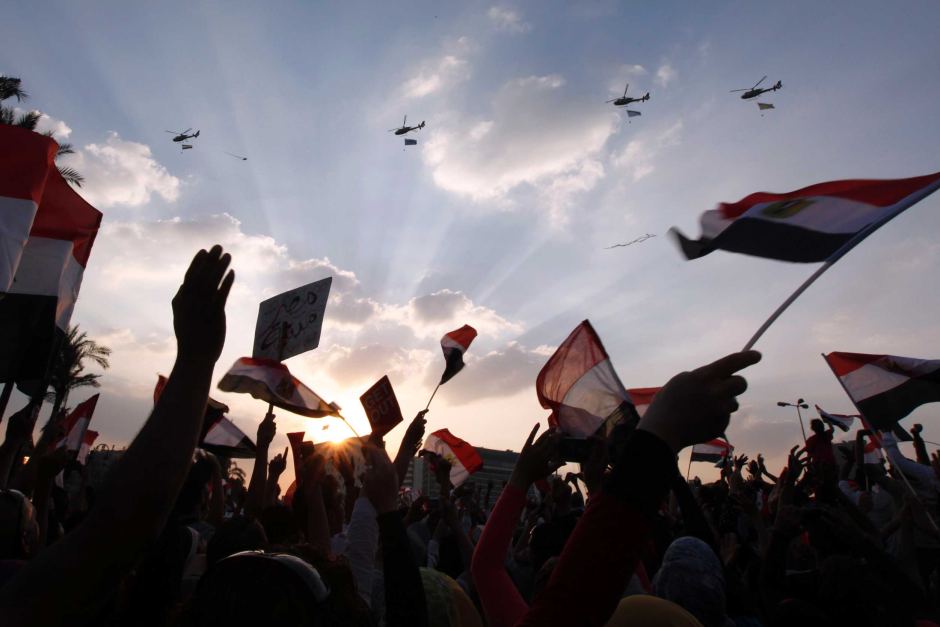To achieve a more democratic, prosperous and stable Africa we must address conflict which destabilized countries, stunt economic growth and rob lives. Roughly half of all peacekeeping operations take place in Africa. The track record for peacekeeping missions in Africa remains mixed. In many cases countries remain fragile, while others are still mired in serious conflict including Somalia, DRC, Sudan and Mali. Similarly, the situation in South Sudan demonstrates the fragile nature of democratic institutions on the continent and exhibits how even relatively stable countries can quickly unravel into conflict. We seem to have a tendency to remember failures, while ignoring important successes such as those seen in Angola, Mozambique, Burundi, Rwanda, Liberia, and Sierra Leone all of which have progressed from periods of prolonged civil conflict to new eras of relative peace and stability.
United Nations Missions on Africa
UN missions deploy to reinforce efforts to create conditions for lasting political settlement and bring a durable peace. The United Nations continues to act as a primary vehicle through which peacekeeping operations are organized, coordinated and funded. On top of regular contributions to peacekeeping forces, permanent UNSC members also share additional responsibilities based on relative economic strength.
We have seen the importance of UN peacekeeping missions in South Sudan, Liberia, Côte D’Ivoire and eastern Congo. There are currently nine UN led or supported Peacekeeping missions in sub-Saharan Africa.
It is essential to strengthen the capacity of regional and sub-regional organizations in Africa. The coordination of both international and regional organization will allow for an inclusive approach to peacekeeping which develops contextualized responses to ensure regional and country specific policies which address the unique dynamics of each individual crisis.
Regional support for Peacekeeping
The founding of the African Union (AU), in 2002, brought the promise of a more robust African regional architecture to address conflict and crisis, which would serve as an active and dynamic adjunct to UN. The center piece of this architecture is the AU’s African Standby Force (ASF) which is composed of five regional standby brigades ready to respond to a range of contingencies:
- Economic community of African States (ECOWAS) standby force,
- the Eastern African Standby force,
- the Sothern African Development Community (SADC) Brigade,
- the Central African Multinational Force (FOMAC) and the
- North African Standby Brigade Capability (NARC)
All four sub-Saharan African brigades have taken initial steps towards becoming operational, while the North African Standby Brigade has made considerably less progress, and has been further delayed by the events of the Arab Spring. ASF remains a work in progress; while each of the brigades vary in their level of readiness, none of them are currently capable of conducting the range of operations contained within ASF’s mandate without significant external support. Nonetheless, ASF helps to set conditions for the deployment of a larger more complex UN-AU hybrid operation, and, in many cases, has proven to be more responsive than the broad international community, as was the case with Burundi in 2003, Darfur in 2004 and Comoros in 2008. 
The current peacekeeping missions that exist plus those being led by Africans themselves are addressing key and fundamental issues that the continent faces. The mission in Somalia (AMISOM) demonstrates to important role the AU can play in terms of regional peacekeeping operations and the remarkable process that can be achieved with coordination. Under the guide of AMISON Mogadishu has been able to move beyond a transitional government and hold elections, as well as developed a new constitution. Additionally, terrorist group al-Shabaab has also suffered dramatic reverses in the last year with military defeats, loss of territory and erosion of revenue base There is now a government in place which has a firmer foundation and greater legitimacy since anytime in the last two decades, which offers a real opportunity for stability
Conclusion
There continues to be a serious need for peacekeeping missions across Africa. It is clear that peacekeeping operations are firmly in the interest of the international community, particularly in this era of increasing fiscal restraint, it is important to highlight the cost effectiveness of UN peacekeeping. Over 70 percent of the annual cost of UN peacekeeping operations is paid by the rest of the world and the cost of unilateral action is far greater (UN peacekeeping missions are 8 times less expensive then funding troops). Moreover, it is important to take advantage of collective action and leverage the expertise of the UN. Should the international community falter in its commitment to developing African peacekeeping capacity, the consequences will be heavier burden on the international community as a whole. Therefore, it is essential that all members meet their responsibilities and obligations and strengthen its peacekeeping commitments in acknowledgement of the tremendous benefit of such missions.





